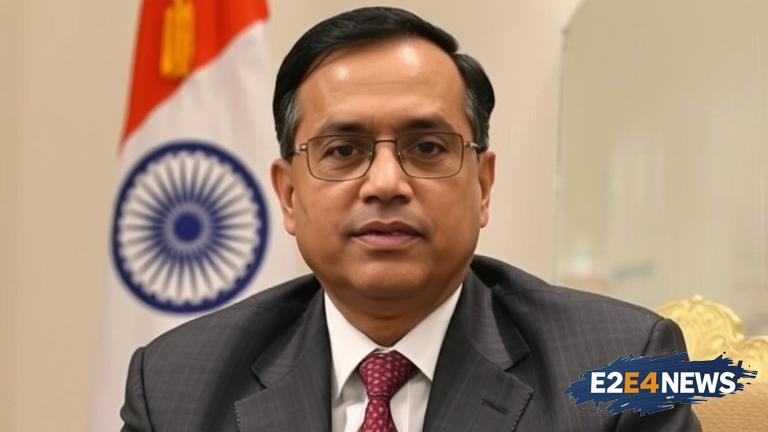The Nijjar case has been a point of contention between India and Canada, with the latter accusing India of being involved in the killing of Canadian citizen Hardeep Singh Nijjar. However, according to former Indian envoy to Canada Sanjay Verma, Canada had no evidence to support its allegations. Verma stated that during his tenure as envoy, he had asked Canadian authorities to provide evidence to back their claims, but they failed to do so. The former envoy also expressed surprise at Canada’s decision to expel an Indian diplomat, stating that it was an unfortunate and unwarranted move. Verma emphasized that India had always maintained a strong stance against terrorism and had cooperated with Canada in the past on such issues. He also pointed out that Canada’s allegations were based on unverified reports and hearsay, which is not a credible basis for making such serious accusations. The Nijjar case has strained relations between India and Canada, with both countries engaging in a war of words. The Indian government has denied any involvement in Nijjar’s killing, and has instead accused Canada of harboring separatist elements. Verma’s comments have added fuel to the fire, with many in India seeing Canada’s allegations as an attempt to undermine India’s sovereignty. The former envoy’s statement has also sparked a debate about the role of diplomacy in resolving such disputes. Many experts believe that diplomatic channels should be used to resolve such issues, rather than resorting to public accusations and expulsions. The Nijjar case has also raised questions about the safety of Indian citizens in Canada, with many expressing concerns about the rising tide of separatism and extremism in the country. The Indian government has urged Canada to take action against such elements, and to ensure the safety of Indian citizens. Verma’s statement has been seen as a strong rebuttal to Canada’s allegations, and has emphasized the need for evidence-based diplomacy. The former envoy’s comments have also highlighted the importance of cooperation between countries in fighting terrorism. The Nijjar case is a complex issue, with many nuances and complexities. However, one thing is clear: the allegations made by Canada against India are serious, and require a thorough and evidence-based investigation. The Indian government has maintained that it is committed to fighting terrorism, and has cooperated with other countries in the past on such issues. The Nijjar case has also raised questions about the role of intelligence agencies in such cases, and the need for greater cooperation between countries in sharing intelligence. Verma’s statement has emphasized the need for a thorough investigation into the Nijjar case, and for evidence-based conclusions to be drawn. The former envoy’s comments have also sparked a debate about the media’s role in reporting such cases, and the need for responsible and balanced reporting. The Nijjar case is a sensitive issue, and requires careful handling by all parties involved. The Indian government has urged Canada to refrain from making public accusations, and to instead use diplomatic channels to resolve the issue. Verma’s statement has been seen as a call for calm and restraint, and for evidence-based diplomacy to prevail. The Nijjar case has also raised questions about the impact of such allegations on bilateral relations between India and Canada. The two countries have a long history of cooperation, and it is essential that such allegations do not damage this relationship. Verma’s statement has emphasized the need for cooperation and diplomacy in resolving such disputes, and for evidence-based conclusions to be drawn.
